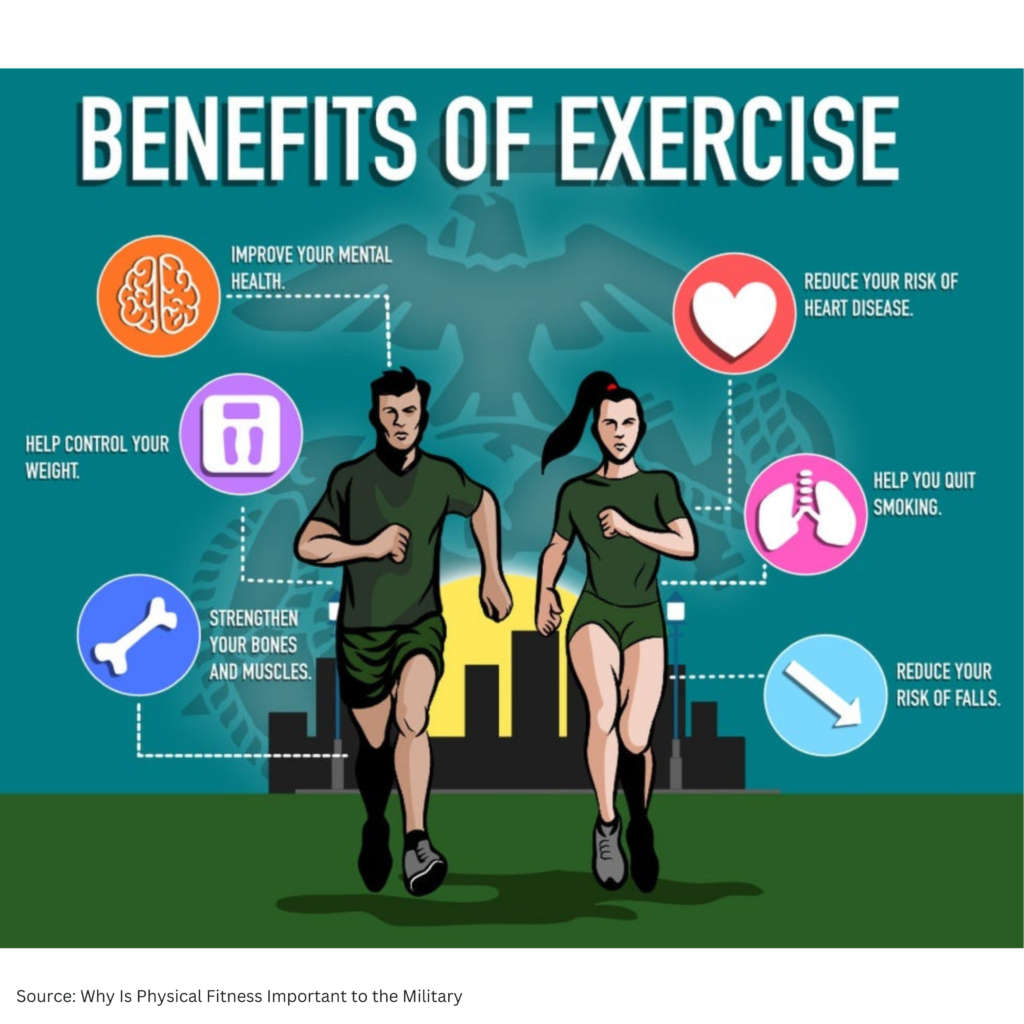Regular physical activity improves overall health and well-being because it is a cornerstone of a healthy lifestyle. offering a multitude of benefits for both the body and mind. Whether through structured exercise routines or simple daily activities, staying active plays a crucial role in maintaining and enhancing overall well-being. From boosting cardiovascular health and aiding in weight management to reducing stress and improving mental clarity, the advantages of regular physical activity are well-documented and far-reaching.
Physical Health Benefits of Exercise
- Improves Cardiovascular Health (Your Heart): One of the most significant benefits of regular exercise is its ability to strengthen your heart. By improving circulation and lowering blood pressure, physical activity reduces the risk of heart disease and other cardiovascular conditions. This, in turn, promotes a healthier and longer life.
- Weight Management: Exercise is a key component of any weight management plan. By increasing your metabolism and burning calories, regular physical activity helps you maintain a healthy weight. Whether your goal is weight loss or weight maintenance, incorporating exercise into your routine is essential.
- Strengthens Muscles and Bones: Weight-bearing exercises, such as walking, running, and resistance training, play a crucial role in building and maintaining muscle strength and bone density. As we age, these activities become even more important in preventing osteoporosis and maintaining mobility.
- Boosts Immune Function: Engaging in regular exercise can also enhance your immune system. Physical activity promotes the circulation of immune cells, helping your body fend off illnesses and infections more effectively. This means fewer sick days and a stronger defense against common colds and other ailments.
Mental Health Benefits of Exercise
- Reduces Stress and Anxiety: Exercise is a powerful tool for managing stress and anxiety. Physical activity triggers the release of endorphins, the body’s natural mood lifters, which help to reduce feelings of stress and promote a sense of well-being. Whether it’s a brisk walk or a yoga session, exercise can significantly improve your mental state.
- Improves Sleep Quality: Struggling with sleep issues? Regular exercise can help. Physical activity helps regulate your sleep patterns, making it easier to fall asleep and enjoy deeper, more restful sleep. A good night’s sleep is essential for overall health and well-being, and exercise can be a natural remedy for insomnia and other sleep disorders.
- Enhances Cognitive Function: Exercise doesn’t just benefit the body; it also sharpens the mind. Physical activity increases blood flow to the brain, improving cognitive functions such as memory, concentration, and decision-making. This makes exercise a vital component of mental fitness, especially as we age.
Emotional Well-being Through Exercise
- Boosts Self-esteem: Achieving fitness goals, no matter how small, can significantly boost your confidence and self-esteem. The sense of accomplishment that comes with regular exercise can enhance your overall outlook on life and make you feel more capable and resilient.
- Helps Combat Depression: For individuals struggling with depression, exercise can be an effective part of treatment. Physical activity promotes the release of serotonin and dopamine, neurotransmitters that play a key role in mood regulation. Regular exercise can help alleviate symptoms of depression and improve emotional well-being.

Staying motivated on your fitness journey can be challenging, but setting clear, achievable goals and tracking your progress can keep you on track. Mix up your workouts to prevent boredom, find activities you genuinely enjoy, and celebrate small milestones to keep the momentum going. Surround yourself with positive influences, whether it’s a workout buddy or a supportive community, to stay inspired and committed. It’s well worth — physical activity is a powerful tool for improving your health and well-being. Here are some tips to help you stay on track.
Tips for Staying Motivated on Your Fitness Journey
- Set Clear Goals: Establish specific, measurable, and achievable goals, such as running a 5K, losing weight, or building muscle. Having clear objectives will keep you focused and motivated.
- Create a Routine: Consistency is key. Schedule your workouts at the same time each day and treat them as a non-negotiable part of your routine.
- Find Enjoyable Activities: Exercise should be fun! Explore different types of physical activities—like dancing, hiking, or yoga—to find what you enjoy most.
- Get a Workout Buddy: Exercising with a friend can make workouts more enjoyable and keep you accountable. It’s easier to stay committed when you have someone to share the journey with.
- Track Your Progress: Use a journal or app to monitor your progress. Celebrate every milestone, no matter how small, to keep your motivation high.
- Reward Yourself: Set up a reward system for reaching your goals. Whether it’s a new workout outfit or a relaxing massage, rewards can provide the extra push you need to stay on track.

Regular physical activity is a powerful tool for improving your health and well-being. Plus, factor-in the bonuses of mental clarity and emotional well-being components that come along. By incorporating the tips above into your fitness routine, you can stay motivated and enjoy the many benefits that come with an active lifestyle. The journey to better health starts with a single step. Taking that step today and reap the rewards for years to come. To take a deeper dive on the importance of physical well-being, read the Mayo Clinic’s article, and our blog on how health and recovery tie in together HERE.


